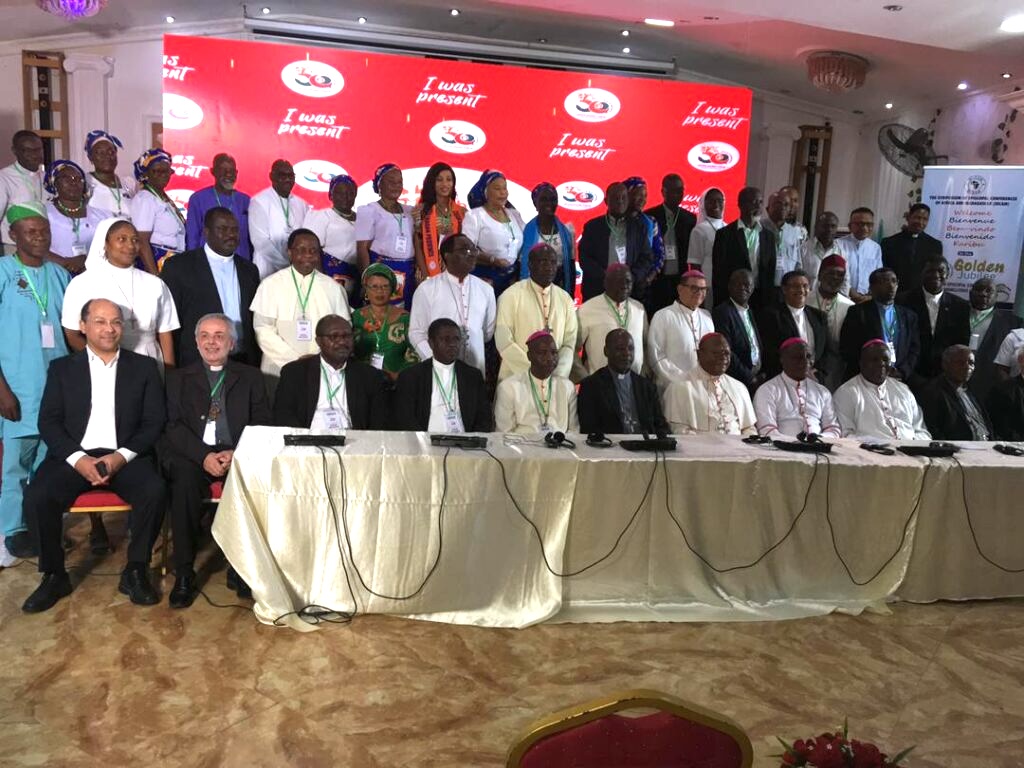SECAM: African Church Urges a “Culture of Fraternity,” Amidst Predicaments on the Continent

Sr. Jecinter Antoinette Okoth, FSSA
Members of the Standing Committee of the Symposium of Episcopal Conferences of Africa and Madagascar (SECAM) after their second annual meeting and celebration of the Golden Jubilee of the Pan African Committee for Social Communications (CEPACS), that was convened in Lagos, Nigeria, from 18-23, November, have called upon all Christians on the continent and the people of goodwill to establish a “culture of fraternity,” amidst the ongoing challenges faced by various countries in the Sub-Saharan region.
According to the Bishops in their statement signed by SECAM President His Eminence Fridolin Cardinal Ambongo of Kinshasa Archdiocese in the Democratic Republic of Congo, “Africa is at a crossroads” because of the many difficulties.”
Highlighting some of the challenges that call for a culture of fraternity and concerted action in the continent the Bishops said, “Despite the concerted efforts by numerous governments to stimulate economic recovery in the aftermath of the COVID-19 pandemic – a crisis that has indelibly impacted the continent, poverty continues to be a pervasive challenge in many countries.”
According to the bishops in Africa, the reports from the regions that form the bigger body of SECAM presented “worsening conditions faced by families in vulnerable circumstances,” and also “underscored the significant challenges confronting young people, particularly the struggles in securing employment even after years of dedicated study and skill acquisition.”
From the reports received by the Church officials, challenges including inter-state conflicts and the subsequent wars, have tragically resulted in numerous innocent casualties, notably among children. In this case, the statement reads, “In our prayers, we solemnly remember all these victims who have tragically lost their lives due to the unchecked ambitions of certain leaders.”
These government leaders, the bishops said, “are driven by self-interests, the agendas of their clans, or the objectives of their foreign allies, and have placed these priorities above the welfare of their own nations.
They further noted that in most African countries, general elections “are seemingly orchestrated to favor state-backed candidates thereby undermining the democratic process.”
As much as episcopal conferences have voiced their concerns on this matter, the African Church aligns herself with the stance taken by the Episcopal Conference of Congo (CENCO), that “The stability of our country and the well-being of its people hinge significantly on the conduct of free, inclusive, transparent and peaceful elections.”
Giving reference to coups d’état that have been realized in the Sahel and Central Africa, the bishops say, “These occurrences contrast with the coups of the 1970s and 1980s, which aimed for acquisition and prolonged retention of power,” while the recent coups are “characterized by a somewhat messianic intent, purportedly aimed at liberating the populace from injustices and terminating the monopoly of national wealth by entrenched “political dynasties” and their international allies.”
“Remarkably, the general populace has shown support for the coup leaders, viewing these actions as an expression of deep-seated frustration and anger towards longstanding injustice,” the bishops highlighted in their statement and added, “These events have prompted a critical re-evaluation of the longstanding geopolitical strategies imposed on African nations, particularly those rich in natural resources. This shift marks a significant turning point in the political landscape of Africa, especially in the Sahel and Central African regions.”
According to the bishops, “The Church advocates for democracy, a system that facilitates citizen participation in political decision-making and ensures that the governed have the ability to select, oversee, and, when necessary, peacefully replace their leaders,” but “stand opposed to coups d’état, a position that aligns with the teachings of the Church, which firmly rejects the seizure of power through force”
At the same time, the Church remains deeply concerned about the well-being of the people in the Sahel and Central Africa particularly those who have shown support for the interim governments formed in the wake of recent coups d’état.
As a way forward, “the Church commits to endorsing and supporting positive developments in these nations aiming to foster a transition towards genuine democracy, and urges political leaders, stakeholders, and civil society groups to engage in collective and proactive efforts.”
They stressed that collaboration is crucial to avoid potential pitfalls, such as prolonging the period of democratic transition unduly.
“We are steadfastly enhancing our social and charitable endeavours to assist those who are vulnerable and support families facing precarious circumstances. Furthermore, we express our solidarity with our fellow bishops who are diligently working towards finding lasting solutions for peace in the Great Lakes region and Sudan. Their commitment is a
testament to our collective effort in fostering stability and harmony in these areas,” they concluded.


